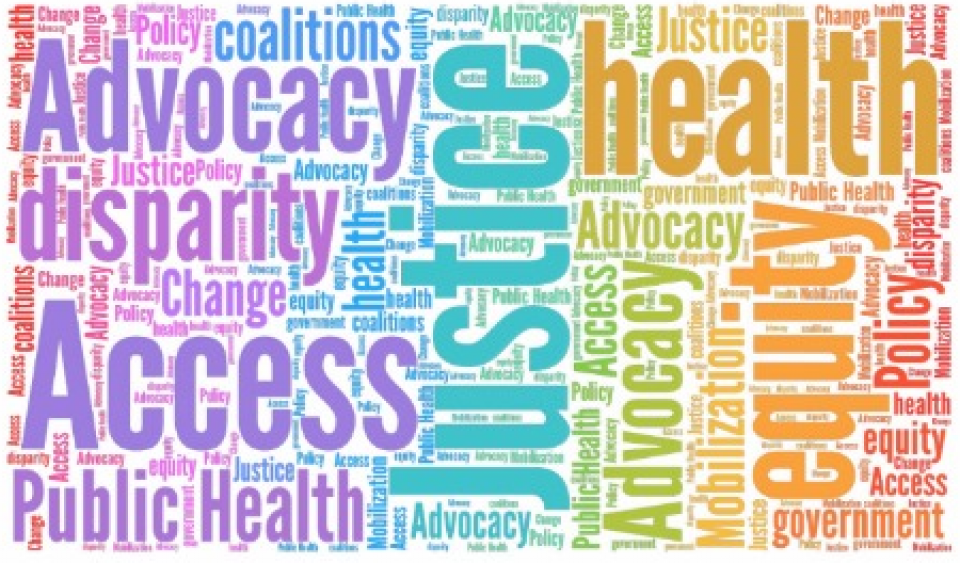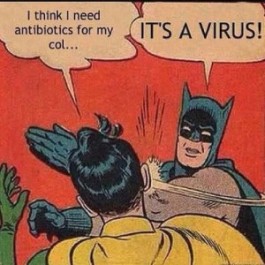Tags
The typical scenario: You wake up with that awful feeling…runny nose, cough and feeling just awful. You take your temperature and it’s a little higher than normal, maybe 99F. You pump yourself full of coffee and move on with your day. It goes on for a couple days until you’ve had enough and make the trip to the doctor to get some antibiotics.
In the last month, my mom, mother-in-law and sister all went to the doctor with these symptoms- and all 3 of them got antibiotics. The question is- do they really know that they might be blowing it?
Bacteria are organisms that are found in and outside our bodies and many of them are actually beneficial. However, sometimes they can cause infections. When bacteria are causing infection, using antibiotics appropriately can help cure the infection. However, many infections, such as colds, the flu, most sore throats, many ear infections and most coughs are caused by viruses, which are not like bacteria. They invade human cells to reproduce and cause illness and antibiotics do NOT work against them (1).
When people use antibiotics to treat infections caused by viruses, they can stop working against bacteria when you or someone else might really need it. This is called antibiotic resistance. The consequences of this are a major public health problem causing scares of resistant bacteria across the country. According to a CDC report, each year, at least 2 million people have infections that are resistant to antibiotics resulting in 23,000 deaths! Some resistant infections caused by bacteria called superbugs, which are resistant to many or all known antibiotics. If you have some extra time, check this out! Many attribute antibiotic resistance to overprescribing or inappropriate prescribing of antibiotics (2). In fact, 30-50% of antibiotic prescriptions in the US are either not needed or not optimally prescribed (2-3).
And, if resistance alone isn’t reason enough to make us stop and think about using antibiotics when they won’t work, we should also consider their side effects, such as allergic reactions, upset stomach and diarrhea (4).
So- why is this even an issue?
Because many people think antibiotics are going to make their infection better faster. But- maybe they are just feeling better because the infection has already run it’s course. People’s beliefs can lead to pressure on physicians to give the antibiotic even if it’s not needed.
So what can we do?
Here’s what the CDC says (4):
- Remember that antibiotics do not fight viral infections, such as colds, most sore throats, bronchitis and many sinus and ear infections
- They do NOT help you feel better or prevent other people around you from getting sick
- They MAY cause side effects and lead to resistance
- Talk to your doctor about whether antibiotics are needed
o If they ARE needed, make sure you follow the instructions and take all the medication as prescribed to prevent resistance
o If they AREN’T needed, ask WHAT ELSE you can do to feel better
And- if you don’t believe me, maybe you’ll believe Batman!
References:
- http://www.cdc.gov/getsmart/antibiotic-use/antibiotic-resistance-faqs.html#bacteria-viruses
- http://www.fda.gov/drugs/resourcesforyou/consumers/ucm143568.htm
- http://www.cdc.gov/drugresistance/threat-report-2013/pdf/ar-threats-2013-508.pdf#page=11
- http://www.cdc.gov/getsmart/campaign-materials/print-materials/poster-answer.pdf


